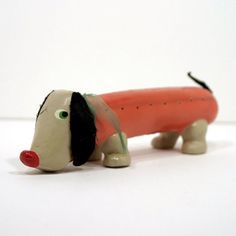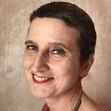My Cancer Journey: Incubating Integration
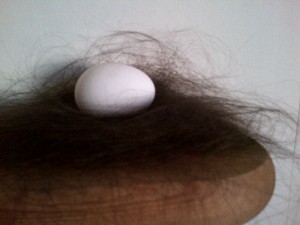
Last week marked a major turning point in my cancer journey, and not just because I am now a) bald and b) receiving a so-called ‘wonder drug’ that will most likely save my life. It was also a week which brought great news about the progress of my treatment so far, and a welcome second opinion on my upcoming operation. In addition, I received my first Housing Benefit payment, and although it plus my sick pay does not cover my monthly outgoings, I also completed two applications for grants to help me cope financially during my illness. I’ve still got a long way to go before full recovery, but after four months of uncertainty, fact-finding, and fighting for physical survival, I finally feel able to move into a calmer and more internal healing relationship with my illness.
For although I have been meeting the challenge of my disease head-on – battling with doctors for Vitamin D and iodine blood tests, seeking expert advice on diet, supplements, water quality and environmental pollution, and researching big pharma, bad and good – I have also felt uncomfortable with the metaphor of the ‘cancer warrior’. Some cancers are genetic, of course, but at least 30% are lifestyle-related, the result of a weakened immune system’s failure to cope with the normal process of evicting disordered cells. My breast cancer, I believe, is a sign that I have been living in a way that is out of balance with my body’s needs, and to significantly combat that tendency, I need to integrate parts of myself that have been wildly out of equilibrium for years. Mindful that my writer’s life had become sedentary and red wine-fuelled, I have given up alcohol, adopted a much healthier diet, and – helped by a rebounder my sister gave me – have made attempts (as far as one can while undergoing chemotherapy), to exercise more.
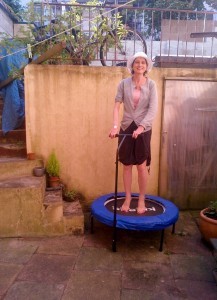
I know, however, that I need to address my mental health too. For decades my chronic depression and anxiety, although milder in recent years, have dampened my ability to take care of myself. Miraculously the depression lifted shortly after my diagnosis: suddenly my life force roared that each moment here on Earth is incredibly precious. But cancer is practically a synonym for uncertainty, and inevitably there have been times of worry and rumination too: old habits that I want to break for good. In Jungian terms, I need to integrate my shadow; in the Blakean phrase I desire to, as much as possible, “cease from Mental Fight” with myself. Right now I wish to lay down my cancer warrior’s Spear, and embrace a gentler identity as a journeyer, delving not only into the etiology of my disease, but also the inner realms of my psyche, exploring and accepting all that I find there. I do not aspire to achieve a static state of perfect calm – I don’t believe such a state is either possible or desirable – but having struggled for so long with anxiety I now would like to make peace with the unknowable; to let my ‘Shrödinger’s breast lump’ lead me to a place where contradictory or difficult possibilities can co-exist free of angst and fear and self-doubt. Over the last months, hypnotherapy, counselling, massage, meditation, poetry and literature and being in nature have all been incredibly powerful teachers for me on this path, and from now on I will be focusing more and more now on the invaluable lessons they are offering me. In so doing – in deeply relaxing – I will help activate my body’s innate and powerful ability to heal itself.
The psychic journey is always also a political and cultural one, and I expect to be making such wider connections as my travels into the land of cancer continue. For now, I’ll just share this week’s good news, which came in three doses. First, on Monday my oncologist told me my tumour was responding well to treatment, being no longer large and round, but – as I could tell myself – smaller and ‘sausage-shaped’; a shrinkage she expected the next three chemo cycles to accelerate. Currently I am scheduled for a mastectomy and lymph node clearance, but if the chemo can reduce the tumour size enough, just a lumpectomy may be needed. I’m prepared for whatever operation is necessary, but the less radical option would obviously be physically and psychologically easier to cope with, so the oncologist’s assessment was reassuring to hear. As a Stage 2 breast cancer patient, though, with 2 infected lymph glands, I have found it hard to accept my Brighton surgeons’ insistence on removing all 30 underarm glands. While my breast is just a decorative organ, my lymph nodes perform a vital function, helping to drain my lymph fluids and filter any infection present: without them I’d be at risk of lymphedema, a painful chronic swelling of the arm, and also would have no defense should the cancer return. During my research I discovered that in America the standard procedure for a patient in my position is now to remove as few nodes as possible, and on Wednesday, thanks to a recommendation from integrative medicine consultancy Cancer Options (a consultation paid for by the charity Yes to Life), I visited the Royal Free Hospital in London for a second opinion on the question.
I sat for two and a half hours in a windowless room, but hanging around all day would have been worth the wait for the surgeon, Mr Ghosh. He immediately informed me that he was in accord with the American convention, and as a matter of course would just remove the nodes that drain the breast, 7-12 in total, leaving intact those that drain the hand. That made sense to me, and vindicated all my insistence on this point. Then, in a completely unexpected bonus, having examined my breast, Mr Ghosh said that in his opinion my tumour would virtually disappear under the next chemo rounds; in fact he was so confident that I was on track for a lumpectomy he would put money on it. I left London elated, my wiener sausage of a lump suddenly feeling like a seventies hors d’oeuvre ready for the surgeon’s stainless steel toothpick.
After a few more weeks marinating in big pharma’s most potent cocktails, that is. Thursday marked the start of Chemo Cycle 4, an important day: after three rounds of a regime entitled FEC, this was the first of my three Herceptin plus Docetaxel treatment cycles. “FEC” officially stands for three unpronounceable chemotherapy drugs, though I prefer my friend Bernadette’ Cremin’s defiant interpretation: “FEC you, cancer!” Docetaxel is another chemotherapy drug, meaning it kills fast-growing healthy cells as well as the cancer, but Herceptin is a targeted drug, locking onto cells on the surface of the tumour. I’m taking this combination now because I’m among the 15% of British women whose breast cancer is at least in part caused by an excess of the protein HER-2 (this acronym not being a feminist statement, but shorthand for ‘human epidermal growth factor receptor 2’). An expensive breakthrough drug approved by the FDA in America in 1998, up until 2006 Herceptin was only available widely in the UK for women with metastatic breast cancer. Women in Shropshire and Wales protested against the postcode lottery for primary breast cancer patients, and finally the NHS agreed to provide Herceptin to all patients who need it. The drug is not a magic bullet, and can in rare cases cause heart damage, but it has considerably improved life chances for women like me, and I was very glad to see that big needle sink into my thigh – without also sinking into my crimson bank balance. Thank you NHS!
More common side effects of chemo are fatigue, nausea, muscle and joint aches, tingling palms, mouth ulcers and hair loss, which I had managed to delay during my FEC cycles by wearing an ice-cap to numb the hair follicles. This doesn’t work for Docetaxel though, so as of this week I’ve had to relinquish my hair, and with it a sense of an old identity card.
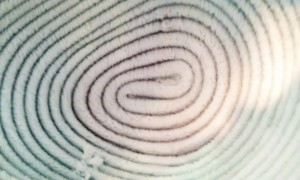
In addition, chemo side effects tend to accumulate and certainly all of these maladies are now affecting me more strongly. So last week’s transformation of my breast cancer activism into a more reflective healing process has come at a good time (followers of astrology will not be surprised to learn that it coincided with Friday’s eclipse of the Pisces Full Moon, conjunct my natal Chiron.) This doesn’t mean that I am going to disappear. I remain immensely grateful for – and in need of – all the astounding help I am receiving from friends and family, from shelter in spare rooms, days out in the country, wondrous cooking and volunteer kitchen cleaning, to prayers and pagan rituals, diverting books, CDs and DVDS, homegrown wheatgrass, massage gift certificates, headscarf wrapping lessons and loving comments here and on Facebook. But at the same time I sense that over the next few months I will be withdrawing into a quieter space: spending less time online and more with people in-person, walking slowly, reading and writing. My operation will likely be held at the end of November, and while I won’t be counting my lumpectomies before they hatch, I will spend the intervening weeks incubating a renewed, rebalanced self: a woman who feels ready to go wherever her cancer journey takes her next.
‘Sister Naomi’ – hair and photo by Akila Richards
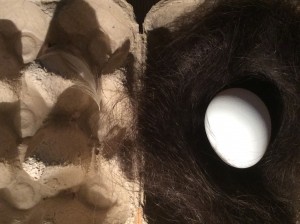
‘Luna’ by John Luke Chapman
Published on September 19, 2016 15:00
No comments have been added yet.

